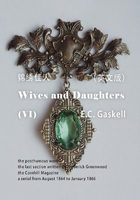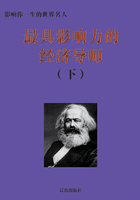Es giebt eine Reihe idealischer Begebenheiten, die der Wirklichkeit parallel lauft. Selten fallen sie zusammen. Menschen und zufalle modifieiren gewohulich die idealische Begebenheit, so dass sie unvollkommen erscheint, und ihre Folgen gleichfalls unvollkommen sind. So bei der Reformation; statt des Protestantismus kam das Lutherthum hervor.
There are ideal series of events which run parallel with the real ones. They rarely coincide. Men and circumstances generally modify the ideal train of events, so that it seems imperfect, and its consequences are equally imperfect. Thus with the Reformation; instead of Protestantism came Lutheranism.
—Novalis. Moral Ansichten.
There are few persons, even among the calmest thinkers, who have not occasionally been startled into a vague yet thrilling half-credence in the supernatural, by coincidences of so seemingly marvellous a character that, as mere coincidences, the intellect has been unable to receive them. Such sentiments—for the half-credences of which I speak have never the full force of thought—such sentiments are seldom thoroughly stifled unless by reference to the doctrine of chance, or, as it is technically termed, the Calculus of Probabilities. Now this Calculus is, in its essence, purely mathematical; and thus we have the anomaly of the most rigidly exact in science applied to the shadow and spirituality of the most intangible in speculation.
The extraordinary details which I am now called upon to make public, will be found to form, as regards sequence of time, the primary branch of a series of scarcely intelligible coincidences, whose secondary or concluding branch will be recognized by all readers in the late murder of Mary Cecila Rogers, at New York.
When, in an article entitled "The Murders in the Rue Morgue," I endeavored, about a year ago, to depict some very remarkable features in the mental character of my friend, the Chevalier C. Auguste Dupin, it did not occur to me that I should ever resume the subject. This depicting of character constituted my design; and this design was thoroughly fulfilled in the wild train of circumstances brought to instance Dupin's idiosyncrasy. I might have adduced other examples, but I should have proven no more. Late events, however, in their surprising development, have startled me into some farther details, which will carry with them the air of extorted confession. Hearing what I have lately heard, it would be indeed strange should I remain silent in regard to what I both heard and saw so long ago.
Upon the winding up of the tragedy involved in the deaths of Madame L'Espanaye and her daughter, the Chevalier dismissed the affair at once from his attention, and relapsed into his old habits of moody reverie. Prone, at all times, to abstraction, I readily fell in with his humor; and, continuing to occupy our chambers in the Faubourg Saint Germain, we gave the Future to the winds, and slumbered tranquilly in the Present, weaving the dull world around us into dreams.
But these dreams were not altogether uninterrupted. It may readily be supposed that the part played by my friend, in the drama at the Rue Morgue, had not failed of its impression upon the fancies of the Parisian police. With its emissaries, the name of Dupin had grown into a household word. The simple character of those inductions by which he had disentangled the mystery never having been explained even to the Prefect, or to any other individual than myself, of course it is not surprising that the affair was regarded as little less than miraculous, or that the Chevalier's analytical abilities acquired for him the credit of intuition. His frankness would have led him to disabuse every inquirer of such prejudice; but his indolent humor forbade all farther agitation of a topic whose interest to himself had long ceased. It thus happened that he found himself the cynosure of the policial eyes; and the cases were not few in which attempt was made to engage his services at the Prefecture. One of the most remarkable instances was that of the murder of a young girl named Marie Rogêt.
This event occurred about two years after the atrocity in the Rue Morgue. Marie, whose Christian and family name will at once arrest attention from their resemblance to those of the unfortunate "cigar-girl," was the only daughter of the widow Estelle Rogêt. The father had died during the child's infancy, and from the period of his death, until within eighteen months before the assassination which forms the subject of our narrative, the mother and daughter had dwelt together in the Rue Pavée Saint Andrée; Madame there keeping a pension, assisted by Marie. Affairs went on thus until the latter had attained her twenty-second year, when her great beauty attracted the notice of a perfumer, who occupied one of the shops in the basement of the Palais Royal, and whose custom lay chiefly among the desperate adventurers infesting that neighborhood. Monsieur Le Blanc was not unaware of the advantages to be derived from the attendance of the fair Marie in his perfumery; and his liberal proposals were accepted eagerly by the girl, although with somewhat more of hesitation by Madame.
The anticipations of the shopkeeper were realized, and his rooms soon became notorious through the charms of the sprightly grisette. She had been in his employ about a year, when her admirers were thrown info confusion by her sudden disappearance from the shop. Monsieur Le Blanc was unable to account for her absence, and Madame Rogêt was distracted with anxiety and terror. The public papers immediately took up the theme, and the police were upon the point of making serious investigations, when, one fine morning, after the lapse of a week, Marie, in good health, but with a somewhat saddened air, made her re-appearance at her usual counter in the perfumery. All inquiry, except that of a private character, was of course immediately hushed. Monsieur Le Blanc professed total ignorance, as before. Marie, with Madame, replied to all questions, that the last week had been spent at the house of a relation in the country. Thus the affair died away, and was generally forgotten; for the girl, ostensibly to relieve herself from the impertinence of curiosity, soon bade a final adieu to the perfumer, and sought the shelter of her mother's residence in the Rue Pavée Saint Andrée.
It was about five months after this return home, that her friends were alarmed by her sudden disappearance for the second time. Three days elapsed, and nothing was heard of her. On the fourth her corpse was found floating in the Seine, near the shore which is opposite the Quartier of the Rue Saint Andree, and at a point not very far distant from the secluded neighborhood of the Barrière du Roule.
The atrocity of this murder, (for it was at once evident that murder had been committed,) the youth and beauty of the victim, and, above all, her previous notoriety, conspired to produce intense excitement in the minds of the sensitive Parisians. I can call to mind no similar occurrence producing so general and so intense an effect. For several weeks, in the discussion of this one absorbing theme, even the momentous political topics of the day were forgotten. The Prefect made unusual exertions; and the powers of the whole Parisian police were, of course, tasked to the utmost extent.
Upon the first discovery of the corpse, it was not supposed that the murderer would be able to elude, for more than a very brief period, the inquisition which was immediately set on foot. It was not until the expiration of a week that it was deemed necessary to offer a reward; and even then this reward was limited to a thousand francs. In the mean time the investigation proceeded with vigor, if not always with judgment, and numerous individuals were examined to no purpose; while, owing to the continual absence of all clue to the mystery, the popular excitement greatly increased. At the end of the tenth day it was thought advisable to double the sum originally proposed; and, at length, the second week having elapsed without leading to any discoveries, and the prejudice which always exists in Paris against the Police having given vent to itself in several serious émeutes, the Prefect took it upon himself to offer the sum of twenty thousand francs "for the conviction of the assassin," or, if more than one should prove to have been implicated, "for the conviction of any one of the assassins." In the proclamation setting forth this reward, a full pardon was promised to any accomplice who should come forward in evidence against his fellow; and to the whole was appended, wherever it appeared, the private placard of a committee of citizens, offering ten thousand francs, in addition to the amount proposed by the Prefecture. The entire reward thus stood at no less than thirty thousand francs, which will be regarded as an extraordinary sum when we consider the humble condition of the girl, and the great frequency, in large cities, of such atrocities as the one described.
No one doubted now that the mystery of this murder would be immediately brought to light. But although, in one or two instances, arrests were made which promised elucidation, yet nothing was elicited which could implicate the parties suspected; and they were discharged forthwith. Strange as it may appear, the third week from the discovery of the body had passed, and passed without any light being thrown upon the subject, before even a rumor of the events which had so agitated the public mind, reached the ears of Dupin and myself. Engaged in researches which absorbed our whole attention, it had been nearly a month since either of us had gone abroad, or received a visiter, or more than glanced at the leading political articles in one of the daily papers. The first intelligence of the murder was brought us by G——, in person. He called upon us early in the afternoon of the thirteenth of July, 18—, and remained with us until late in the night. He had been piqued by the failure of all his endeavors to ferret out the assassins. His reputation—so he said with a peculiarly Parisian air—was at stake. Even his honor was concerned. The eyes of the public were upon him; and there was really no sacrifice which he would not be willing to make for the development of the mystery. He concluded a somewhat droll speech with a compliment upon what he was pleased to term the tact of Dupin, and made him a direct, and certainly a liberal proposition, the precise nature of which I do not feel myself at liberty to disclose, but which has no bearing upon the proper subject of my narrative.
The compliment my friend rebutted as best he could, but the proposition he accepted at once, although its advantages were altogether provisional. This point being settled, the Prefect broke forth at once into explanations of his own views, interspersing them with long comments upon the evidence; of which latter we were not yet in possession. He discoursed much, and beyond doubt, learnedly; while I hazarded an occasional suggestion as the night wore drowsily away. Dupin, sitting steadily in his accustomed arm-chair, was the embodiment of respectful attention. He wore spectacles, during the whole interview; and an occasional signal glance beneath their green glasses, sufficed to convince me that he slept not the less soundly, because silently, throughout the seven or eight leaden-footed hours which immediately preceded the departure of the Prefect.















